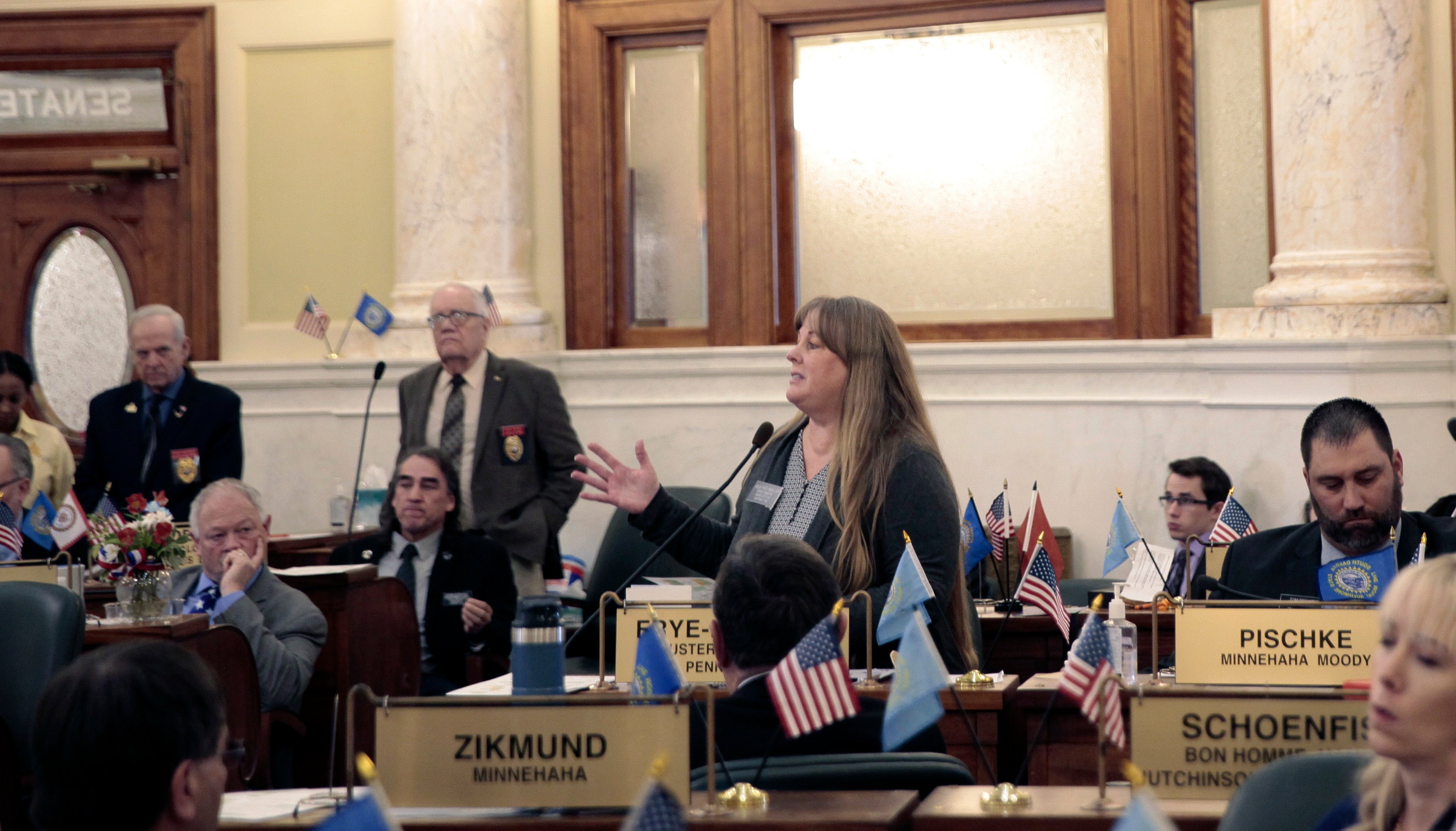S. Dakota Senate suspends lawmaker after vaccine exchange
The South Dakota Senate has suspended a Republican state senator in a rare move that stripped her of legislative power while keeping the allegations against her a secret

Your support helps us to tell the story
From reproductive rights to climate change to Big Tech, The Independent is on the ground when the story is developing. Whether it's investigating the financials of Elon Musk's pro-Trump PAC or producing our latest documentary, 'The A Word', which shines a light on the American women fighting for reproductive rights, we know how important it is to parse out the facts from the messaging.
At such a critical moment in US history, we need reporters on the ground. Your donation allows us to keep sending journalists to speak to both sides of the story.
The Independent is trusted by Americans across the entire political spectrum. And unlike many other quality news outlets, we choose not to lock Americans out of our reporting and analysis with paywalls. We believe quality journalism should be available to everyone, paid for by those who can afford it.
Your support makes all the difference.The South Dakota Senate on Thursday suspended a Republican state senator in a rare move that stripped the lawmaker of all legislative power while keeping the allegations against her a secret.
Sen. Julie Frye-Mueller, who is among a group of right-wing Statehouse Republicans, told reporters earlier Thursday that she was being punished following an exchange she had with a legislative aide about vaccinations.
Sen. Michael Rohl, the Republican lawmaker who initiated the motion to suspend Frye-Mueller, said in a statement that it was based on “serious allegations” and had been made to ensure the Legislature was creating a safe work environment for employees. He likened the Senate’s suspension to the move a business owner or human resources department would make when allegations are raised.
“The Senate will operate swiftly and diligently through the process of an investigation and provide the opportunity for due process to all parties involved,” Rohl said.
The Republican-controlled Senate voted 27-6 to form a committee to investigate Frye-Mueller's conduct and in the meantime suspend her from voting or holding other rights of an elected official. Republican legislative leaders refused to comment Thursday on the allegations that led to them suspending the Senate rules and stripping their colleague of her ability to represent her constituents.
The Senate Republican leader, Sen. Casey Crabtree said the legislative punishment was “brought after a lot of serious thought," but offered little else on the allegations. Another high-ranking Republican, Sen. Lee Schoenbeck, said it was meant to “protect the decorum” of the law-making body.
Schoenbeck removed Frye-Mueller from two committee assignments on Wednesday.
One of Frye-Mueller's Senate allies, Sen. Tom Pischke, spoke against the suspension, saying it was based on a “she said-she said situation” and would deprive Frye-Mueller's constituents of their representation in the Senate.
Lt. Gov. Larry Rhoden, who serves as the Senate's president, also opposed the move, cautioning against the precedent of suspending an elected representative. But his objections were overruled in a two-thirds majority vote by the Republican-controlled Senate.
Republicans in the Legislature have become deeply divided in recent years. One of the battlegrounds between right-wing members and Republicans who support the political establishment has been over separate proposals to limit requirements for the COVID-19 vaccine and childhood vaccines.
Frye-Mueller said she did not bring up the COVID-19 vaccine during her exchange with the aide and that she has not been formally presented with the allegations against her.
Childhood vaccines have long been celebrated as public health success stories, but vaccination rates among kindergarteners have dropped nationwide in recent years. Officials with the Centers for Disease Control and Prevention have said that decreased confidence in vaccines is a likely contributor, as well as disruptions to routine health care during the pandemic.
Falling vaccination rates open the door to outbreaks of diseases once thought to be in the rearview mirror, experts say.
___
Groves reported from Sioux Falls, South Dakota.